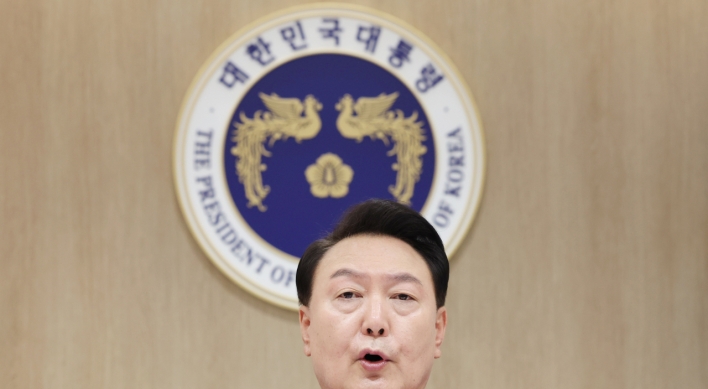[Robert J. Fouser] South Korea as a Middle Power
By Robert J. FouserPublished : Sept. 25, 2020 - 05:31

But what is MIKTA and why is it important? MIKTA was founded in 2013 by the five nations during the UN General Assembly that year. Foreign ministers meet annually to discuss cooperation on global issues. The chair of the meeting rotates annually, and South Korea is chair for 2020. MIKTA is not a formal organization, but a forum for consultation among the five nations.
The composition of MIKTA is based on shared interests as “middle powers” rather than geography or history, which are the basis for many international groupings. All the countries are all members of the UN and the G-20, but each nation is a member of different international groups, including military alliances and free trade agreements. As middle powers, they have complex relationships with great powers that have moved world affairs.
For South Korea, MIKTA is an opportunity to define itself as a middle power. Definitions of a middle power vary, but an important feature is an emphasis on multilateral cooperation and the development of regional and international institutions. Size and “national power” play a role, but a commitment to multilateralism and cooperation is more important in defining a middle power.
Until the early 2000s, South Korea defined itself as a “weak country” or a “developing country.” Democratization in 1987 and the Seoul Olympic Games in 1988 were seen as starting points in the march toward becoming an “advanced nation.” The economic crisis in 1997 sapped the nation’s confidence, but as the economy recovered and democratic institutions continued to strengthen in the 2000s, more Koreans began to view their country as “developed.”
Since its founding in 1948, the division of the country, the Korean War and the competition between two Korean states has defined South Korean foreign policy. To protect itself, South Korea has maintained a close alliance with the US, including the stations of tens of thousands of US troops in the country. The US has benefited from this relationship, of course, and neither country is interested in changing it. Throughout the period, the US has been the most influential power in the world, causing South Korea to see itself as the weak junior partner in the relationship.
The 2010s saw the growth of national confidence in South Korea that was behind the country’s interest in forming MIKTA with other middle powers in 2013. South Korea recovered quickly from the Great Recession of the late 2000s, while most of the countries that Koreans have used as benchmarks lagged. Avoiding another 1997-collapse helped boost national confidence. Koreans traveling abroad found that many things in Korea were more “advanced” than in the places they visited.
The sharp rise in tensions between the US and North Korea in 2017, followed by a series of inter-Korean summits and US-North Korean summits in 2018 and renewed tensions in 2019, were all reminders of the centrality of North Korea and great power politics in South Korean foreign relations. With the focus back on North Korea, middle-power initiatives like MIKTA faded quickly into the background.
South Korea’s effective response to the COVID-19 pandemic has created a new opportunity for the country to project itself as a middle power. The response was quick and effective, which turned the country into a model for others to emulate. Since the 1980s, developing countries began to look to South Korea for inspiration, but now countries that Koreans had long thought of as “advanced” began looking to South Korea for ideas.
President Moon’s desire to help developing countries fight the pandemic is a natural extension of South Korea’s emergence as a pandemic role model. It creates an opportunity for South Korea to define itself as a leader in tackling global issues.
The problem is money. The pandemic has ravaged economies around the world, forcing governments deeply into debt to support struggling economies. The challenge for South Korea, MIKTA and other potentially benevolent middle powers is to develop “financially sustainable” approaches that can withstand the pressures of inward-looking populism.
Robert J. Fouser
Robert J. Fouser, a former associate professor of Korean-language education at Seoul National University, writes on Korea from Pawtucket, Rhode Island. He can be reached at robertjfouser@gmail.com -- Ed.












![[KH Explains] How should Korea adjust its trade defenses against Chinese EVs?](http://res.heraldm.com/phpwas/restmb_idxmake.php?idx=644&simg=/content/image/2024/04/15/20240415050562_0.jpg&u=20240415144419)






